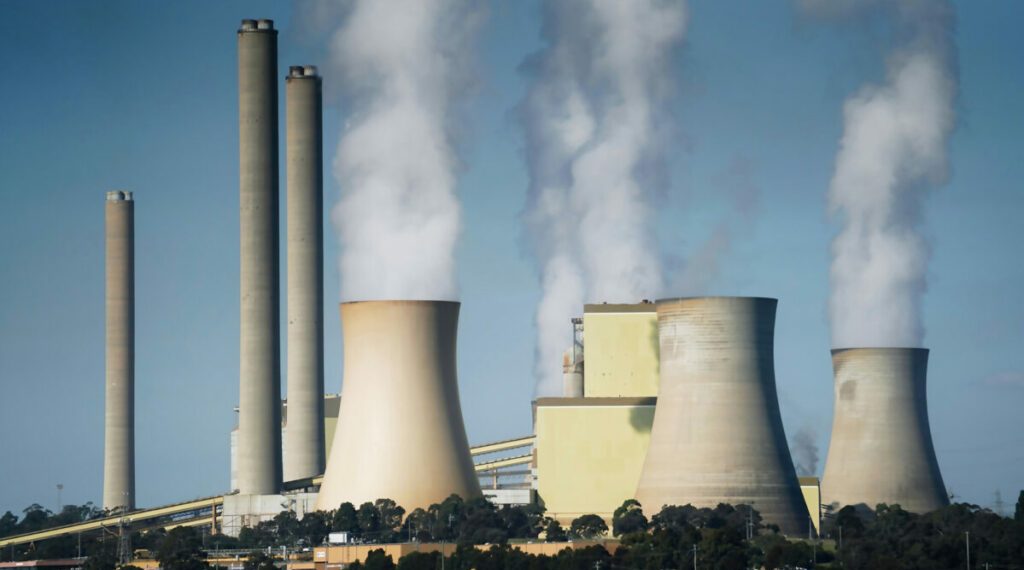The Group of Seven (G7) nations announced on Tuesday that its members would end the use of “unabated” coal by 2035. However, the agreement allows some flexibility, permitting countries to extend this deadline under certain circumstances.
In a communiqué released after a meeting of energy, climate, and environment ministers in Turin, Italy, the group committed to “phase out existing unabated coal power generation in our energy systems during the first half of the 2030s.”
This marks a significant climate policy advancement, as G7 negotiators had previously failed to reach such an agreement over several years of discussions.
The term “unabated” coal refers to the use of coal where the resulting carbon emissions are not captured before being released into the atmosphere. This provision allows countries to continue using coal past 2035 if they implement carbon capture technologies.
The agreement also includes a clause stating that countries may choose “a timeline consistent with keeping a limit of 1.5°C temperature rise within reach, in line with countries’ net-zero pathways.”
This suggests that countries could continue using coal beyond 2035, provided their total national emissions do not exceed the threshold that would cause global temperatures to rise more than 1.5 degrees Celsius above pre-industrial levels.
Science indicates that exceeding this limit could lead to tipping points or adaptation challenges for many of the planet’s ecosystems.
Several G7 members have already nearly eliminated coal from their energy mixes. Coal constitutes less than 6% of electricity generation in the UK, Italy, and Canada, and is almost non-existent in France.
In contrast, it still makes up 32% of Japan’s electricity, 27% of Germany’s, and 16% of the US’s, according to the think tank Ember.
This announcement follows the recent introduction of new rules by the US Environmental Protection Agency, which require coal-fired power plants to either capture nearly all of their climate pollution or shut down by 2039.
When asked about the caveats in the G7 agreement, Italian Environment and Energy Security Minister Gilberto Pichetto Fratin defended the decision, emphasizing that the language reflects a commitment to phasing out coal while considering the economic and social balance of each country.

This stance contrasts with UK minister Andrew Bowie’s earlier statement, which mentioned an end to coal by 2035 without referencing unabated coal or any potential timeline flexibility.
Despite these caveats, several climate policy experts have praised the announcement as a significant breakthrough after years of obstacles.
Jennifer Layke, the global director for energy at the World Resources Institute, highlighted the importance of setting an end date for coal, describing it as a crucial step toward a faster transition away from coal than previously anticipated.
However, the think tank Climate Analytics criticized the 2035 deadline as insufficient for limiting global warming to 1.5 degrees. Their analysis suggests that all coal use in G7 nations should end by 2030 at the latest, with natural gas use ending by 2035, to prevent surpassing the 1.5-degree limit.
Jane Ellis, head of climate policy at Climate Analytics, noted that many countries had already committed to phasing out coal before 2030 and have limited coal capacity left.
She also pointed out the absence of a gas phase-out in the agreement, emphasizing that gas has been the largest source of global CO2 emissions increase over the past decade.
Many G7 governments continue to invest in new domestic gas facilities, a move Ellis described as counterproductive both economically and environmentally.
Ellis urged the G7 to accelerate the transition to renewable energy sources. Fossil fuels, particularly coal, are major contributors to the climate crisis, with coal being the most polluting.
Despite its controversial nature, setting an end date for coal remains a contentious issue. Japan has previously blocked progress on this front at past G7 meetings.
Almost all countries agreed last year at the COP28 climate talks in Dubai to move away from fossil fuels. However, the failure to set a definitive end date for coal was seen as a limitation of those negotiations.
The G7 often leads global climate policy, and its decisions typically influence the wider G20, which includes other major emitters like China and India, as well as significant fossil fuel producers such as Saudi Arabia and Russia.


